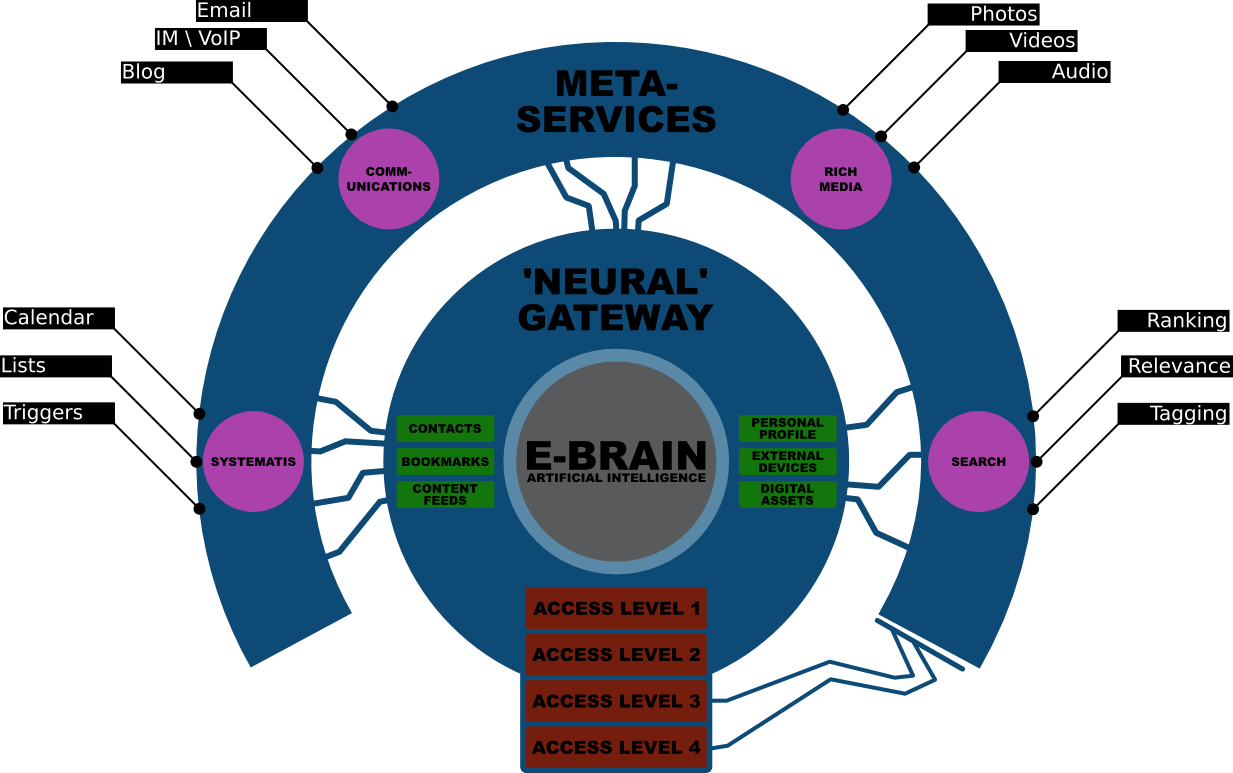Back in November 05, I posted about the concept of “Web 2.0” which was (and still is to an extent) the latest buzzword for something which is still pretty fuzzy and difficult to define. However, in my mind, the underlying notion here of moving to a user-centric model of content distribution, a shift in the way we navigate through information, and changes in the underlying program style (amongst other things) is merely another step to something much bigger…
The way I see it, a big part of the idea here is about collectively converting data into information which can be used to form knowledge about anything and everything (which is eventually perceived as wisdom). If we divorce the idea from the technological implementation then data conversion happens through the aggregation and integration of disparate, loosely-coupled, systems based on globally consistent standards. From this interconnected knowledge communities form.
To an extent we can already see this with services like Gmail, Flickr, YouTube, Digg, Wikipedia, Del.icio.us and many more all leading the way with their own web-based applications which deliver/organise content based roughly around this concept; be it knowingly or not. Here content is no longer just sitting in a forgotten folder somewhere but becomes part of something more valuable and accessible.
This is all very good but as of yet there is no truly joined up experience which pulls all the elements together. Google is taking small steps towards this (e.g. email & IM integration, universal search…) but it’s still a long way from comprehensive. To try and get a better picture of it I’ve put together a fairly simplistic visualisation (GITS style!) of all the different components I envisage if we take things a step further:

At the core lies an individuals “Personal Profile” – this is the hub of their digital self (an e-brain if you like) which contains all the connections to everything outside it. Along with connections it also provides an artificial intelligence (AI) to manage and archive everything past and present into a logically accessible format. It will also present information which may be of future relevance based on what it has learnt through the
Outside of the immediate profile are a number of [meta-] services which concern communication, rich media, organisation (I’m naming this ‘
Just imagine a platform where you could search, cross-reference, publish, view… anything regardless of format or location. This is the epitome of everything, everywhere: On your computer, on your phone, on your iPod; in your brain? The way you interface is arbitrary and would constantly evolve… I could elaborate furtherthoughtbut I think you get the point… the iPhone is a perfect example of how this is already becoming a reality, albeit a baby step towards it.
You might question Why would want all this? I see it as a way to cope with the increasing information overload we face every day in such an efficient way it takes most of the effort out of everyday information conversion/transfer. It makes finding, learning and understanding almost trivial and frees our minds to deal with other tasks.
So there you have it – Good idea? Bad idea? Already here? SOA on steroids? This tieor have I just watched The Matrix one too many times? I’d be fascinated to hear what people think!

Reply